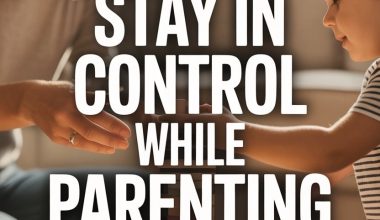Ever catch yourself wondering if you’re screwing up your kid? If you’re a parent, the answer is a resounding yes—at least twice before breakfast. Don’t panic.
Most of us are just muddling through, cheerios in hair and all, loving our little people as fiercely as we can.
That love is the bedrock, but a strong bond needs more than good intentions and the occasional “I’m sorry I yelled about the Lego in my foot.”
Some habits, often picked up on autopilot, can chip away at that magical connection. Let’s pull five of the biggest culprits into the daylight.
1. Constant Criticism and Comparison
Nothing puts a dent in a child’s sense of self quite like a steady drizzle of criticism—or the classic “Why can’t you be more like your cousin Sam, who already speaks three languages and can tie his own shoelaces with his toes?”
Kids thrive on approval, especially from their parents.
A 2021 study published in Child Development showed that children exposed to persistent negative feedback from caregivers were more likely to develop anxiety, low self-worth, and a reluctance to share their feelings.
Of course, no one suggests you heap on the praise for every half-hearted attempt at tidying up.
But catch your child being awesome, even in tiny ways: “I noticed you tried to help your sister with her puzzle.” Replace “You never listen” with “I appreciate when you listen the first time.”
Comparisons? Best left to the Olympics. Your child is not a carbon copy of the neighbour’s kid, and that’s the point. Celebrate the quirks—even the ones that drive you up the wall.
2. Emotional Unavailability
You’re physically present (okay, and occasionally hiding in the loo for a moment’s peace), but emotional presence is a different ball game.
When parents are distracted—by their phones, the news, or their mental to-do list that stretches into next week—children feel it.
Psychotherapist Dr. Tina Payne Bryson says children need “connection before correction.” If a child senses their parent is emotionally checked out, they stop coming with their joys and worries.
The result? Emotional distance that’s hard to bridge.
Try this at dinner tonight: put your devices away and ask your child the silliest thing that happened at school. If conversation is met with shrugs, don’t give up.
Sometimes it takes a few tries (and the promise of ice cream) to open the floodgates.
Even five minutes of undivided attention can work wonders. Quality counts more than quantity here—a fact every overworked parent can celebrate.
3. Dismissing or Minimising Feelings
Picture it: Your little one’s in tears because their biscuit broke in half. The temptation to say “It’s just a biscuit, get over it” is strong. (If you’ve never bitten back that phrase, send me your secrets.)
Yet, according to the Gottman Institute, children need their feelings acknowledged, even when those feelings seem outlandish to grown-up brains.
Brushing them off as silly teaches kids to stuff down emotions or feel ashamed for having them.
Instead, try “You’re sad your snack broke. That’s frustrating.” Naming a feeling is half the battle.
No need to launch into a TED talk about emotional regulation—just let your child know you see them. The more you validate, the more your child will trust you with the big stuff later.
4. Lack of Consistent Boundaries
Kids want limits almost as much as they want chocolate buttons—though you’d never guess it from the way they push back. Boundaries provide safety. They say, “I care enough to keep you safe and teach you how the world works.”
Erratic rules or consequences (“Last night you stayed up till 10, but tonight bedtime’s 7:30 because I can’t cope”) leave children feeling insecure. They learn to test, negotiate, or simply ignore house rules.
According to child psychologist Dr. Laura Markham, children with predictable routines and boundaries are more confident and cooperative.
They know what’s expected and what the fallout will be when they push the limits.
Review family rules and routines. Are consequences clear and fair? Even if your child protests, you’re building trust by being consistent. (It won’t earn you Parent of the Year in their eyes, but you’ll sleep better.)
5. Parental Stress and Poor Self-Care
Ever notice your patience level has a direct correlation with your coffee intake and hours of sleep? Children pick up on parental stress like a bloodhound on a biscuit trail.
Chronic stress can make you snappy, withdrawn, or unpredictable—all of which erode trust.
A 2018 review in Frontiers in Psychology found that parents under prolonged stress were less responsive and more likely to use negative discipline.
The kicker? Children in those homes reported feeling more distant from their parents.
Don’t martyr yourself on the altar of parenthood. Take time (even small, sneaky moments) to recharge. Tag-team bedtime with your partner, chuck the kids at granny for an hour, or just let them watch Bluey while you sip tea and stare at the wall.
Self-care isn’t selfish. It’s essential if you want any hope of handling the next meltdown with something other than a primal scream.
Repairing Bonds Starts Small
If you spot yourself in any of these, congratulations—you’re human. No parent nails it all, all the time. Bonds are built in a thousand small interactions, not grand gestures.
The magic happens in the “How was your day?” and the “I’m sorry I lost my cool.” If you need to course-correct, start tonight.
Tuck your child in, apologize for the moment you snapped, listen to their tale about a rogue crayon up the nose. Small, consistent acts of connection matter more than parental perfection.
And if all else fails, there’s always cake. For both of you.





